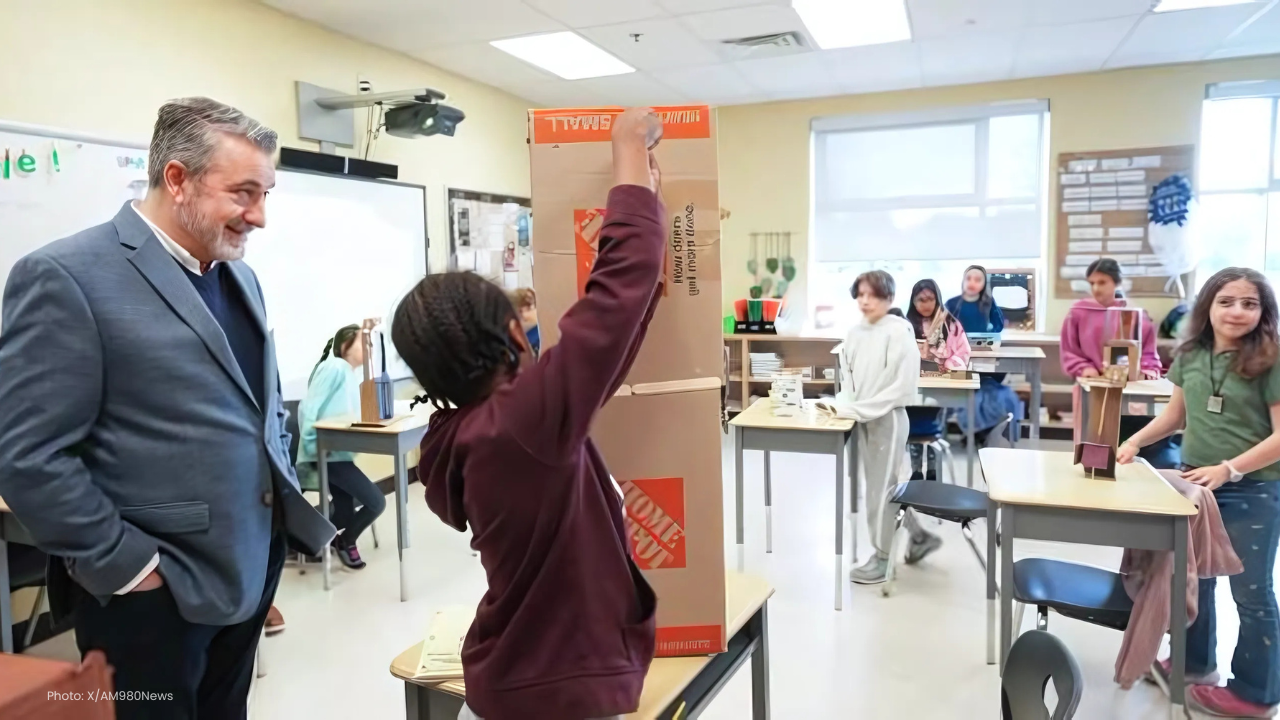
Russian Missile Strike Kills 5 Civilians in Ukrain
Russian strike kills five civilians in Ukraine's Kostiantynivka city.

A heated debate has been growing in Ontario’s education sector as the provincial government highlights spending by school board trustees. The Ford government, led by Education Minister Paul Calandra, has pointed to questionable purchases such as milkshakes, Apple TV subscriptions, and phone accessories as examples of waste and mismanagement.
But critics say this fight over trustee expenses is pulling attention away from something much larger — the real financial challenges schools are facing. They argue that years of funding below inflation are the real reason school boards are struggling, not spending habits on small items.
Recent internal reports show that Ontario school boards are increasingly facing budget deficits. Just a few years ago, most boards had surpluses, meaning they had money left after covering costs. But that has changed drastically.
In 2020-21, 61 out of 72 school boards reported surpluses.
By 2021-22, the number dropped into the 40s, and deficits have continued to rise.
Across all boards, the shift went from a $211 million surplus in 2020-21 to a $187 million deficit the following year.
For 2024-25, the combined deficit has grown to nearly $196 million.
The ministry projects some improvement in coming years, but still expects 29 school boards to remain in deficit in 2025-26.
NDP education critic Chandra Pasma said the government is ignoring the bigger issue. She believes the focus on trustee expenses is a way to deflect from the province’s responsibility for underfunding schools.
“When the number of boards with a deficit is going up, that’s not a management issue — that’s a funding issue,” Pasma explained. She added that the government has not kept up with inflation and enrolment growth, leaving boards short of money to meet basic needs.
Education Minister Calandra has argued that pointing out trustee expenses is part of restoring accountability. His office released records from the Toronto Catholic District School Board, showing purchases like an Apple Watch strap and other accessories. The province has now ordered the board’s chair to return nearly $7,000 worth of items.
Trustees and their supporters, however, accuse the minister of hypocrisy. They point to his own expense claims for hotel stays in Toronto, arguing he is guilty of the same behavior he criticizes.
Education advocates say the real crisis is the funding gap between actual costs and what the government provides.
Kathleen Woodcock, president of the Ontario Public School Boards Association, noted that there is now a $404 per-student funding gap compared to 2018. She explained that rising costs for special education, pensions, insurance, and maintaining schools are pushing boards into deeper deficits.
She added that boards need stable, adequate funding to continue offering “safe, inclusive, high-quality education” to every student.
The Ford government insists it is investing more money than ever before. A spokesperson for Calandra said the province is spending $30.3 billion on education this year, calling it a record-high amount.
They also defended the focus on trustee spending, arguing that “parents deserve confidence” that every dollar is being spent on students, not luxuries or personal items.
The government has warned trustees that they must “focus on their mandate, or step aside.”
While the government and trustees trade accusations, the growing deficits mean tough choices for schools. Without more funding, boards may have to cut programs, delay repairs, or reduce supports for students with special needs.
Parents and teachers worry that this debate over expenses is wasting time while children face larger class sizes, fewer resources, and crumbling school facilities.
The argument over a milkshake or an Apple Watch strap may seem small, but critics say it masks a much bigger problem: Ontario’s schools simply don’t have enough money to keep up with rising costs.